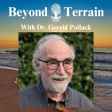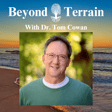
How a Parasite (Helminths) Can Heal Irritable Bowel Disease and More with Kyla Marie
In this episode, we’re joined by Kyla Marie for a fascinating discussion on helminth therapy and the misunderstood role of parasites in human health. We begin by defining helminth therapy and its place within the natural order, exploring how these organisms have co-evolved with us over time.
Kyla explains how helminths interact with the microbiome and why they function differently from other microbes. We also dive into the hygiene hypothesis and biota alteration theory, questioning whether modern sterilization practices have negatively impacted our health.
The conversation expands into helminth exposure from birth, pets, and dewormers, raising important questions about our historical relationship with these organisms. We also discuss parasitic rashes, immune reactions, and autoimmune diseases, shedding light on how helminths may play a protective role against chronic illness.
Kyla breaks down how helminthic therapy works, its preventative potential, and how to increase helminths in our environments. We also cover key considerations, common misconceptions, and what clinical trials reveal about the safety and efficacy of this unconventional therapy.
This episode challenges mainstream views on parasites and offers a fresh perspective on health, immunity, and the microbiome. Tune in for a thought-provoking conversation with Kyla Marie!
Keep up with me (socials)
https://www.instagram.com/beyond.terrain/
Our vision at Beyond Terrain is best supported by sharing our work!
Joining our private terrain community is also a wonderful way to support what we do here at Beyond Terrain.
https://beyondterrain.com/beyond-terrain-community/
Learn more from and support our esteemed guest, Ms. Kyla Marie
https://www.instagram.com/letshealibd/
https://letshealibd.com/
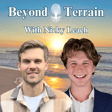


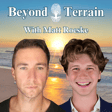
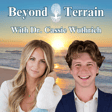

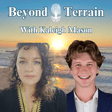




![DNA Doesn't Exist & Genomic Nonsense with Dr. Jerneja Tomsic [Part 2] image](https://media.zencastr.com/cdn-cgi/image/width=112,quality=85/image-files/652933f3a749dc383eb375de/ce5a5fd9-98c9-44fe-9b4b-3d0cd5abcf29.png)


